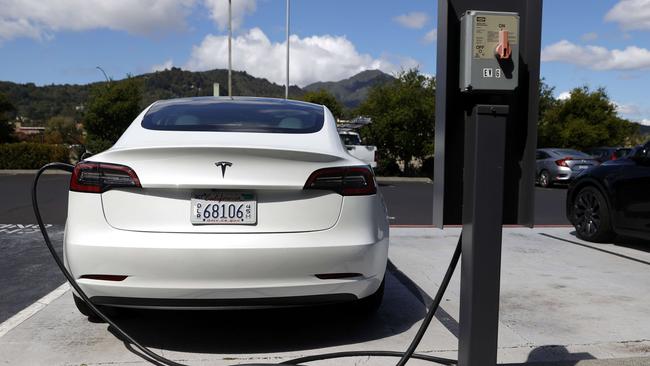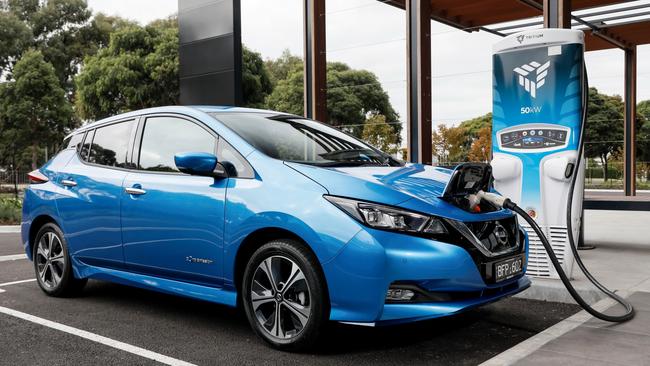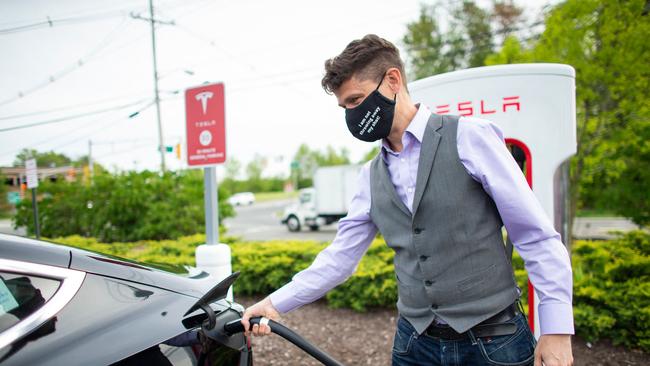
It might be hard to have a sensible debate about, as there seem to be few things more likely to send Australians flying off into a rage than almost anything to do with roads.
Petrol prices, cyclists not paying registration, and now the multifaceted debate over the nation’s inevitable transition to electric vehicles are all guaranteed to polarise a room.
In large part Australian politicians, particularly at the federal level, have pretty much ignored the issue, and why not?
Advocate subsidies or even support for electric vehicles and you risk coming across as a bit too woke, a bit too green and, with the vehicles still largely the province of well-heeled early adopters, where are the votes?

The South Australian government led with its chin early on, declaring in its November 2020 budget it would examine introducing a road-user charge for electric vehicles, which by their nature do not pay the hefty fuel excise other road users do.
Treasurer Rob Lucas put the idea on ice for a year in March, in a bid to wait and see what other states did.
This leaves Victoria as the only state now preparing to introduce a road-user charge, scheduled to come into effect from July 1.
Electric vehicles will be charged 2.5c/km, while plug-in hybrids will be charged 2c/km. But bizarrely, zero and low-emissions vehicles also get a $100 registration discount due to their green credentials, and the government announced in May it would offer subsidies of up to $3000 for new electric vehicle purchases under $69,000 as part of a policy to have all new cars sold in Victoria by 2030 to be zero emissions.
Road users in Victoria will have to report their odometer readings to the government in order to have their tax calculated, adding another bureaucratic wrinkle to the process.
So the Victorian government is both taxing and subsidising electric vehicles, South Australia wants to see what everyone else will do, and there is no leadership in sight from the federal government.
Should the states go it alone, we risk the unwieldy scenario where different taxes apply across state lines, which would most likely precipitate a regulatory debacle and, with the major vehicle manufacturers all signalling their plans to transition to an emissions-free future, the clock is ticking.
Electric vehicle advocates argue that instead of looking to tax the vehicles, we should be subsidising them, like many jurisdictions around the world do, in order to hasten our transition to a lower carbon footprint.
I would argue this is not necessary. With billions of dollars in subsidies flowing around the globe, the major car manufacturers have been well-funded to make the technology transition, and a move to electric vehicle use can be hastened by regulation, and will happen naturally as their mix in the market naturally grows.
The missing pieces from an Australian perspective are a national infrastructure plan to ensure we have the charging stations in place for when electric vehicles are widespread outside of the leafy suburbs of our major cities, and a plan to fairly charge road users for the wear and tear they exert on our roads.
Otherwise we risk — and not that slowly — losing the billions of dollars in fuel excise we collect each year, and having nothing to show for it, or at best a hodgepodge of state-based schemes.
It’s interesting to note that a national network of fast-charging stations is a high-priority initiative on Infrastructure Australia’s to-do list, and has been since early 2019.

“The initiative includes: developing a network of fast-charging stations on, or in proximity to, the national highway network to provide national connectivity (and) developing policies and regulation to support charging technology adoption,’’ Infrastructure Australia says. “National policies and regulation to complement the rollout of fast-charging infrastructure would reduce the risk of competing standards and redundant investments, and maximise interoperability.’’
Indeed. The federal budget included no targeted measure to drive electric vehicle take-up, and the government’s interest in the area seems at best tepid.
A Nissan representative, speaking at a recent Senate Economics Legislation Committee hearing into a bill designed to stop states putting barriers such as new charges in the way of electric vehicle adoption, said Australia “continues to be a difficult market” for electric and hybrid vehicles.
What both Nissan and the Federal Chamber of Automotive Industries advocated for at the hearings was a national approach, setting targets around how the nation transitions to electric vehicles and, crucially, a co-ordinated national approach to road user charges, which should not just target electric vehicles.
They are both simple, commonsense aims. And therefore, they are probably doomed.




Australia desperately needs a co-ordinated, federal plan for the transition to electric vehicles, or we risk a regulatory nightmare and massive infrastructure backlog.